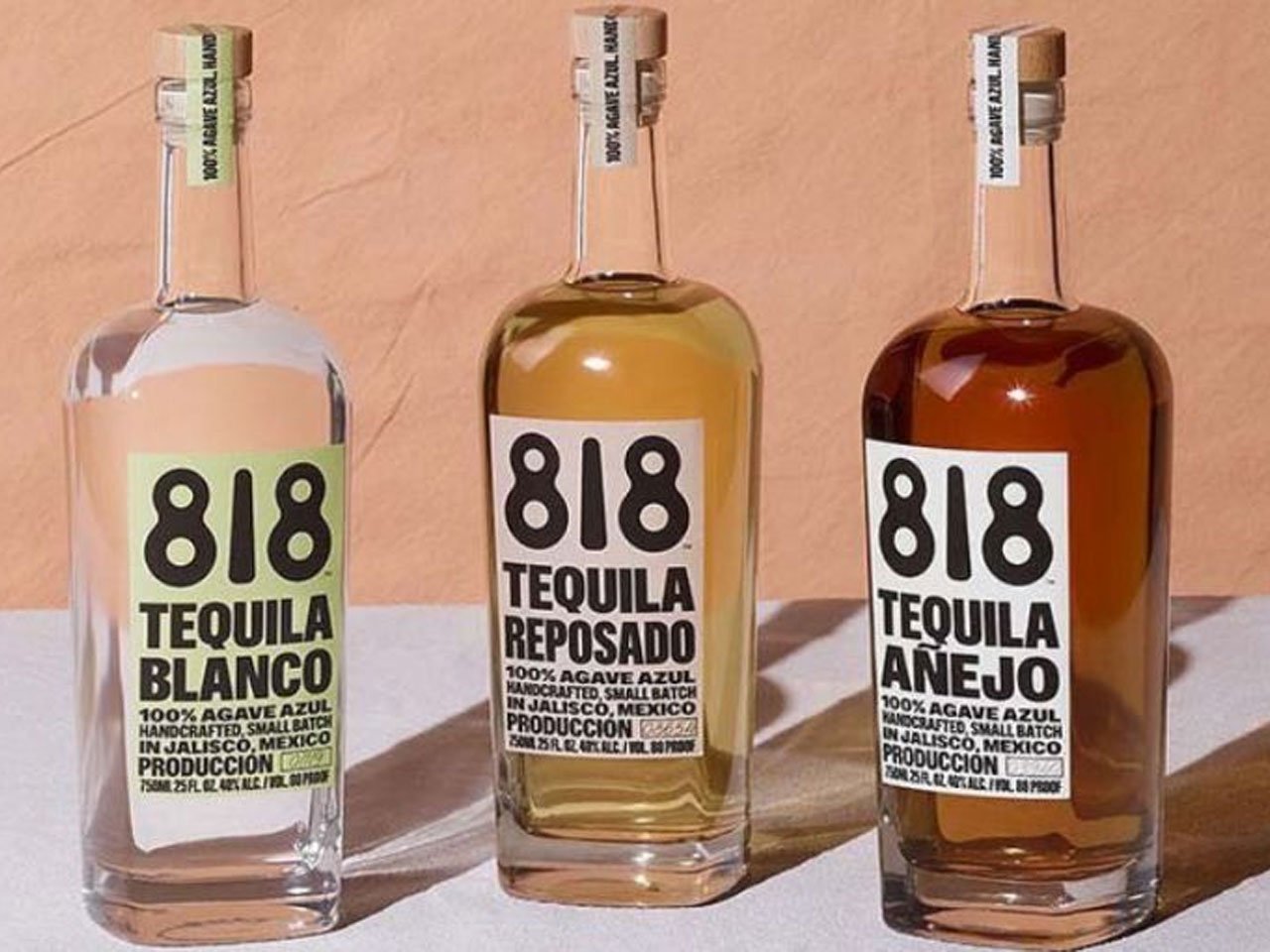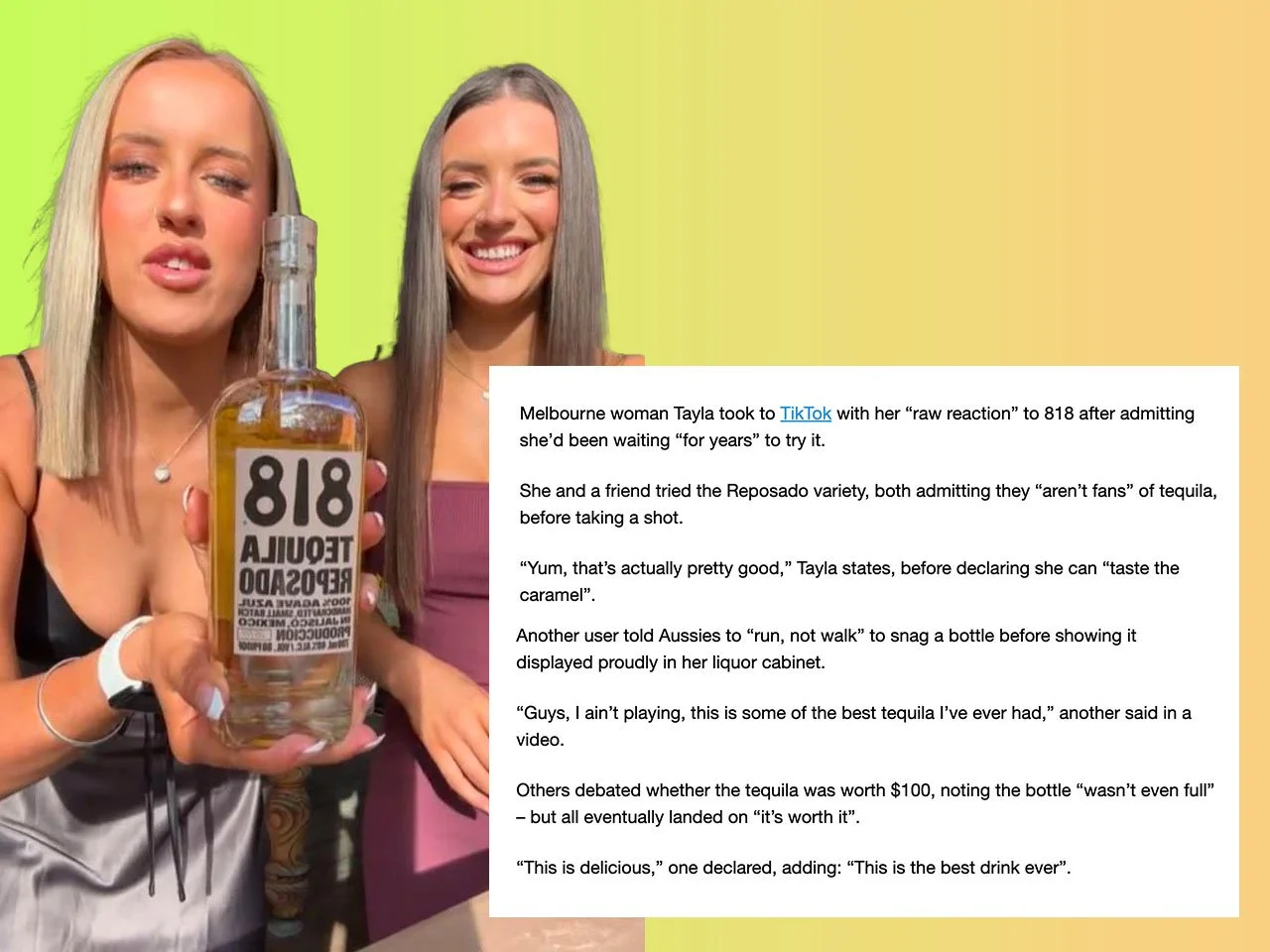In Defence of the Basic Bitch: Why Kendall Jenner Is Not Your Whipping Post for Cultural Appropriation
In this article, using 818 Tequila as our example, we'll attempt a discussion surrounding the complexity of where cultural appropriation, commerce and branding meet.
I’m gonna let you in on something: I am a late 30-something dude bro Graphic Designer. I have an unhealthy collection of indoor plants. I am one long weekend away from installing a fire pit or something. I am acutely aware that I’m in no way qualified, or have any business talking about Kendall Jenner or any other member of the extended Kardashian universe. I would rather talk about literally any other topic.
But here we are, so let’s define our terms.
According to Oxford languages, cultural appropriation and misappropriation are interchangeable. They are defined as the adoption or use of elements from one culture by members of another culture, often without understanding or respecting the original context. It can reinforce stereotypes and contribute to cultural insensitivity. Cultural misappropriation is particularly devious when dominant cultures modify and profit from these stereotypes without benefiting minority cultures.
Cultural appropriation is not a new phenomenon, it’s been around for millenia. In the ancient marketplace of ideas, this is how civilisations have exchanged concepts and adopted new ways of doing things: ideas, foods, art, words, dances, phrases and dress are borrowed and evolved at the speed of culture.
And culture today is very fast.
But what is the signal and what is the noise? Are we being overly sensitive?
Release the Karens!
We all know how easy it is to drum up outrage on the internet. So what are the charges against Kendall?
Usually I don’t recommend reading the comments section under any circumstances — the moral pile-on is cringe.
In a world that often perceives cultural dynamics through a narrow lens and knee-jerk accusations, claims of Kendall Jenner's cultural misappropriation in launching 818 Tequila might seem a bit like trying to see the nuances of Mexican culture through a toilet paper roll. Yeah, that’s a narrow view.
For us (however limiting) this becomes a starting point for unravelling the intricate relationship between cultural commodification, branding and design-driven commerce. Unfortunately, distillation of culture isn’t as easy as tequila.
Poppin’ bottles.
Believe it or not, Mexican culture is already part of the capitalist carnival.
Call it a consequence of globalisation. If you’ve ever eaten a taco/burrito bowl made by a Vietnamese guy, or worn a cheap plastic sombrero at a beach side hotel bar, you’ll understand.
Tequila, an integral part of Mexican culture, has long been entangled in this web of commoditisation. The allure of this elixir has seen capitalists seeking a slice of the agave empire for quite a while. With the wealth and status of Hollywood, you can imagine just how much of a crowded field that is.
The list of celebrities to launch their own brands in the recent past include George Clooney, The Rock, Rita Ora, Nick Jonas, Carlos Santana, Lebron James and Michael Jordan to name just a few. Most notably, in June 2017, Clooney’s Casamigos was acquired by the multinational beverage company Diageo for an eye-watering $700 million plus up to a further $300 million based on the brand's performance.
Each gringo-owned, headline-grabbing brand launch contributes to tequila’s status as a pre-packaged cultural product — Kendall’s just happens to be one of the most high-profile.
Cinco de Drinko!
The creative industry’s dirty little secret is that design is born of, in service to, and at the mercy of commerce. It treats culture like a resource to be mined, packaged, and sold.
Enter 818 Tequila, not as a bespoke distilled blend, but a pre-batched spirit of reposado, añejo and blanco varieties, auctioned (presumably) to the highest bidder.
Generally, tequila is a spirit that must be produced in specific regions of Mexico, primarily in the state of Jalisco and limited areas in certain neighbouring states. Tequila production is regulated by the Mexican government, and authentic tequilas often come from established distilleries within these regions.
According to this PR Newswire release in September 2021, 818’s spirits maker moved their production to NOM 1607, Grupo Solave's state-of-the-art distillery in Jalisco, under David Yan Gonzalez, Head of Tequila Production.
Grupo Solave happens to be the worldwide leader in Agave Syrup production and one of the biggest tequila producers for brands as far as Russia, Korea and Australia, producing over 28 million litres of tequila every 12 months in their industrial stills.
They are also owned by OLEOMEX, a leading Mexican industrial corporation that produces edible oils, margarine, cookies and personal care products.
That makes 818’s claims of working closely with local, family-owned farms in Amatitán using traditional Tahona extraction, misleading.
But this only reinforces the point that tequila (and by extension, Mexican culture) is already highly commodified and the arguments for Kendall misrepresenting and underpaying peasant Mexican agave farmers is, shall we say, a moot point.
What about the accusation that 818 tequila doesn’t actually support the communities it supposedly represents?
818 claims to be B-Corp certified, sustainable and commits 1% of revenue to environmental nonprofit partners through 1% For the Planet. Boxes, corks and labels are certified by Forest Stewardship Council and bottles are made from recycled glass.
They also work closely with S.A.C.R.E.D. (Saving Agave for Culture, Recreation, Education and Development). Since establishing themselves in 2017, they have generously provided over 35,000 agave seedlings to families in Oaxaca facing challenges in obtaining the necessary plants due to the surge in global interest in mezcal.
So, what we do know is that Kendall’s product has already been produced and pre-batched as ready-to-sell tequila by a Mexican corporation, presumably with some guidance and input from Mexican tequila experts and advisors from Grupo Solave. To dismiss their input would immediately disqualify any accusations of cultural misappropriation.
This means tequila wasn’t taken — we have permission to buy and sell the commodity plus we've got compensation.
Kendall’s narrative of dedicating four years to perfecting the taste and earning awards is pure brand storytelling. We might not all be buying the tale, but really, what brand is going to admit their product is generic? Few brands openly declare their products as anything less than exceptional.
“Magical Experiences”
The question of whether 818 misrepresents tequila or Mexican culture on face-value is a complex one.
818 represents the area code for Calabasas, California, home for Jenner. According to the brand’s storytelling sheet it’s “a place where family and friends gather to share magical experiences, usually including tequila.”
Denotatively, the visual identity is unadorned and uncluttered — green colour tones are an obvious visual shorthand for the precious agave plant. The brand ‘kit of parts’ including typography and composition are (pleasingly) simple, tightly controlled and cohesive — the designer doesn’t try to borrow too much from latin visual culture. Aside from the half-dozen easily translated Spanish words you would expect to find on any tequila bottle, the entire label is in English.
What Latinx stereotypes does this reinforce? Could this be enough to be considered a misappropriation? Connotatively, there just doesn’t seem to be enough subjective, cultural, or emotional meaning embedded to interpret this as even trying to be authentically Mexican. As it should not.
Commodity Fetishism
Commodity fetishism, a cornerstone in Marxist thought, exposes a fascinating phenomenon within consumer culture.
Sometimes we treat the things we buy like they're more important than they really are. Let's say you get a new phone. Instead of just being a device to call and text, you might start seeing it as something more. It becomes a symbol of how tech-savvy you are, your connection to the latest trends, or even a status symbol.
Commodity fetishism is like giving everyday things, like phones or sneakers, extra meaning and importance in our lives, almost like they have special powers. It's a way of looking at how we relate to the stuff we buy and how it fits into the bigger picture of our society.
Branding is an exercise in relativity. 818 positions itself in contrast to the cheap and nasty tequila varieties that give some of us PTSD, and brands targeted at distinguished drinkers. It is designed to communicate just enough salt-of-the-earth ‘magic’ to connect with Kendall’s youthful, (presumably gringita) female followers.
via news.com.au
This is commodity fetishism in practice: they want to drink ‘magical experiences’ like her. They want to be her. Ergo, the agency brief to the designer was likely ‘don’t alienate her audience by making it too authentic/Mexican’.
Strip away Jenner's name, and one might argue 818 becomes just another middle-of-the-road celebrity tequila that even Lindsay Lohan could have launched.
The unnecessary backlash, driven by the association with a celebrity of Kendall’s reputation hasn't dampened demand, indicating the resilience of the brand positioning.
‘Am I basic?’
To conclude, let’s go back to defining our terms.
I find the Urban Dictionary definition of ‘Basic’ to be the most helpful, so let’s adopt their terminology. ‘Basic’ is a pejorative used to describe people who are ‘perceived to prefer mainstream products, trends and music.’
818 Tequila brand positioning is actually perfect, considering Kendall’s audience and followers. It’s a ‘basic’ mainstream tequila, made for a laughably unaware herd of tragically inauthentic cheugy millennials and Y2K wearing Gen Z-ers.
Design makes it possible to link cultures without needing physical closeness. However, there's a catch — it often leads to cultural values becoming abstracted and lost.
This might sound like I’m trolling, but maybe, just maybe, 818 has the potential to become an entry point to Latinx culture.
The backlash to Kendall and 818 Tequila calls into question the authenticity of those who are quick to judge a brand’s credibility — while diluting instances of legitimate cultural misappropriation.
The historical commodification of tequila exposes tensions in commerce-driven design.
It’s not necessarily a case of Yanks like Jenner and others of her ilk just waltzing across the border to pillage Mexican culture, without it being sold already.
When you think about it, not liking Kendall Jenner could be considered basic because so many people hate on her. You leave her alone! (Insert Britney meme).
But don’t ask me, I’m not qualified to comment on that. I’m already 3 margaritas deep, and going for another. Pass me the lime juice, por favor.
Bibliography
818 Tequila Partners With S.A.C.R.E.D. to Support Agave-Producing Communities in Mexico
Aussies froth as Kendall Jenner’s 818 Tequila lands Down Under
9 Things You Should Know About 818 Tequila
I Tried Kendall Jenner's '818' Tequila Brand After It Launched In Australia
Kendall Jenner's Tequila Brand Actually Is Problematic
Cultural Appropriation in Design and ‘The Cipher’, Burcu Yancatarol Yagiz, Kadir Has University, Istanbul, (2013)
Bastard Culture! User participation and the extension of the cultural industries, Schäfer, M.T., (2008)






